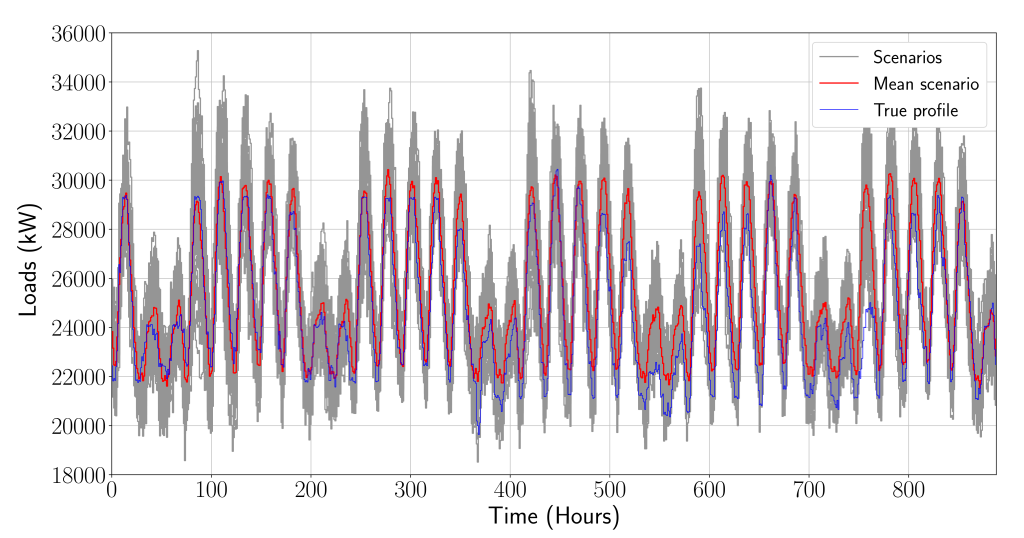
Victor Zavala, a PI in the DOE-funded MACSER project and the Baldovin-DaPra associate professor at the University of Wisconsin-Madison, will present a two-day course on stochastic programming in Madison on Dec.5–6.
The course, titled “Stochastic Programming: Formulations, Algorithms, and Applications,” is designed to bring together graduate students, researchers, and practitioners from academia and industry to learn how to formulate, analyze, and solve stochastic programming problems.
“Real-world problems almost always involve some unknown data. Stochastic programming is a way to mathematically model these large-scale optimization problems. It has applications in a wide range of areas – from energy systems to manufacturing – where some of the data is random,” said Zavala.
The course begins with an introduction to probability and optimization concepts and covers different problem classes including risk measures, probabilistic constraints, stochastic dominance, and uncertainty quantification.
The second part of the course focuses on algorithmic advances for handling stochastic problems on modern architectures.
In the third part of the course, the discussion turns to implementation. “Stochastic programming on high-performance computing platforms raises challenging issues in parallelism and scalability,” Zavala said. “We address these issues and give numerical examples of solver tools implemented in various programming languages such as Julia.”
To demonstrate the scope of the concepts and tools, Zavala also discusses real applications. Stochastic programming techniques are critical for decision-makers, particularly those involved in energy and environmental management, such as resource planning for the power grid.
“Members of MACSER may find this course a way to quickly become familiarized with this rapidly growing field,” said Mihai Anitescu, a senior computational mathematician in the Mathematics and Computer Science Division at Argonne National Laboratory and head of the MACSER project. “Stochastic programming is a key mathematical aspect of MACSER’s multifaceted mathematics research related to the grand challenges of design, planning, and operation of complex energy systems.”
For more information, including how to attend this short course see:
